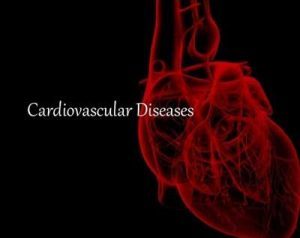- Home
- Editorial
- News
- Practice Guidelines
- Anesthesiology Guidelines
- Cancer Guidelines
- Cardiac Sciences Guidelines
- Critical Care Guidelines
- Dentistry Guidelines
- Dermatology Guidelines
- Diabetes and Endo Guidelines
- Diagnostics Guidelines
- ENT Guidelines
- Featured Practice Guidelines
- Gastroenterology Guidelines
- Geriatrics Guidelines
- Medicine Guidelines
- Nephrology Guidelines
- Neurosciences Guidelines
- Obs and Gynae Guidelines
- Ophthalmology Guidelines
- Orthopaedics Guidelines
- Paediatrics Guidelines
- Psychiatry Guidelines
- Pulmonology Guidelines
- Radiology Guidelines
- Surgery Guidelines
- Urology Guidelines
SCAI examines strengths and weaknesses of sham PCI trial

This year, the Society for Cardiovascular Angiography and Interventions (SCAI) celebrated the forty-year anniversary of a groundbreaking procedure, now known as percutaneous coronary intervention (PCI), that has saved millions of lives and enhanced the lives of millions more. Four decades of clinical study have confirmed the benefit of PCI for patients with myocardial ischemia (insufficient blood flow to an area of the heart muscle). A new study presented today at the Transcatheter Cardiovascular Therapeutics (TCT) 2017 scientific symposium in Denver questions the value of this revolutionary procedure in some patients.
The Objective Randomized Blinded Investigation With Optimal Medical Therapy of Angioplasty in Stable Angina (ORBITA) study was a small study that randomized 200 patients with stable ischemic heart disease to PCI or a sham procedure after a six-week period of intensive medical therapy optimization. The effectiveness of PCI was evaluated using exercise time on a treadmill six weeks after the procedure. The study found that exercise time for PCI-treated patients improved by 28.4 seconds, while sham-PCI treated patients increased exercise time by 11.8 seconds. This difference was not statistically significant. The trial did not assess longer-term effects of PCI, as participating patients and their physicians were unblinded after six weeks.
SCAI, the world's leading society for interventional cardiologists, questions the conclusions of this study. SCAI has long stood by the conviction, based on abundant clinical evidence, that PCI is the preferred treatment for cardiac patients who need more than medicines to improve their health and quality of life.
"We applaud the investigators for their innovative use of a sham procedure, but we're concerned about the reliability and interpretation of the findings. The number of patients studied was very small, so the study is far from conclusive. The primary endpoint used, exercise tolerance, is imprecise and very subjective: patient tolerance of exercise normally varies from week to week, so differences of a few seconds in exercise tolerance are hard to interpret," said SCAI President Kirk N. Garratt, MD, MSc, FSCAI. "Despite this, the improvement in exercise time among PCI patients was almost 2.5 times greater than in sham patients, suggesting PCI led to incremental improvement.
"The most objective measure of ischemia relief in ORBITA was a secondary endpoint of heart performance called the DSE peak stress wall motion score index. This measure was significantly improved by PCI over sham treatment. Since PCI provides benefit by relieving ischemia, this test proved that PCI worked, and can provide added benefit even with optimal medical therapy," he continued.
"Intensive medical treatment will reduce symptoms over the short run. In ORBITA, patients were given three times as many heart pills than they usually took during the six weeks before PCI or sham-PCI. Not surprisingly, patients improved: one out of every six patients had no symptoms after this. In 2017, we don't subject stable patients without symptoms to PCI, so this study doesn't properly reflect current PCI practice. Convenience and medication side effects are also big concerns for patients. This small study shouldn't overturn decades of study that have led to current practice standards," said Dr. Garratt.
"ORBITA was undertaken because the investigators were concerned about the placebo effect. Of course, the placebo effect can be very powerful in the short term, but ischemia remained for these sham-treated patients. Since the hearts of sham-treated patients were still struggling with ischemia, I worry about the longer-term," Dr. Garratt stated. "Andreas Gruentzig, the inventor of angioplasty, advocated for rigorous study of the technique from the start. He would approve of using a sham procedure, but I think he would have demanded a larger, longer study with less subjective endpoints."
Consistent research and innovation within the profession over the last four decades has proven that PCI relieves ischemia and improves function significantly in patients with stable heart disease. SCAI supports PCI and the interventional cardiologists who use it to save and enhance lives.

Disclaimer: This site is primarily intended for healthcare professionals. Any content/information on this website does not replace the advice of medical and/or health professionals and should not be construed as medical/diagnostic advice/endorsement or prescription. Use of this site is subject to our terms of use, privacy policy, advertisement policy. © 2020 Minerva Medical Treatment Pvt Ltd